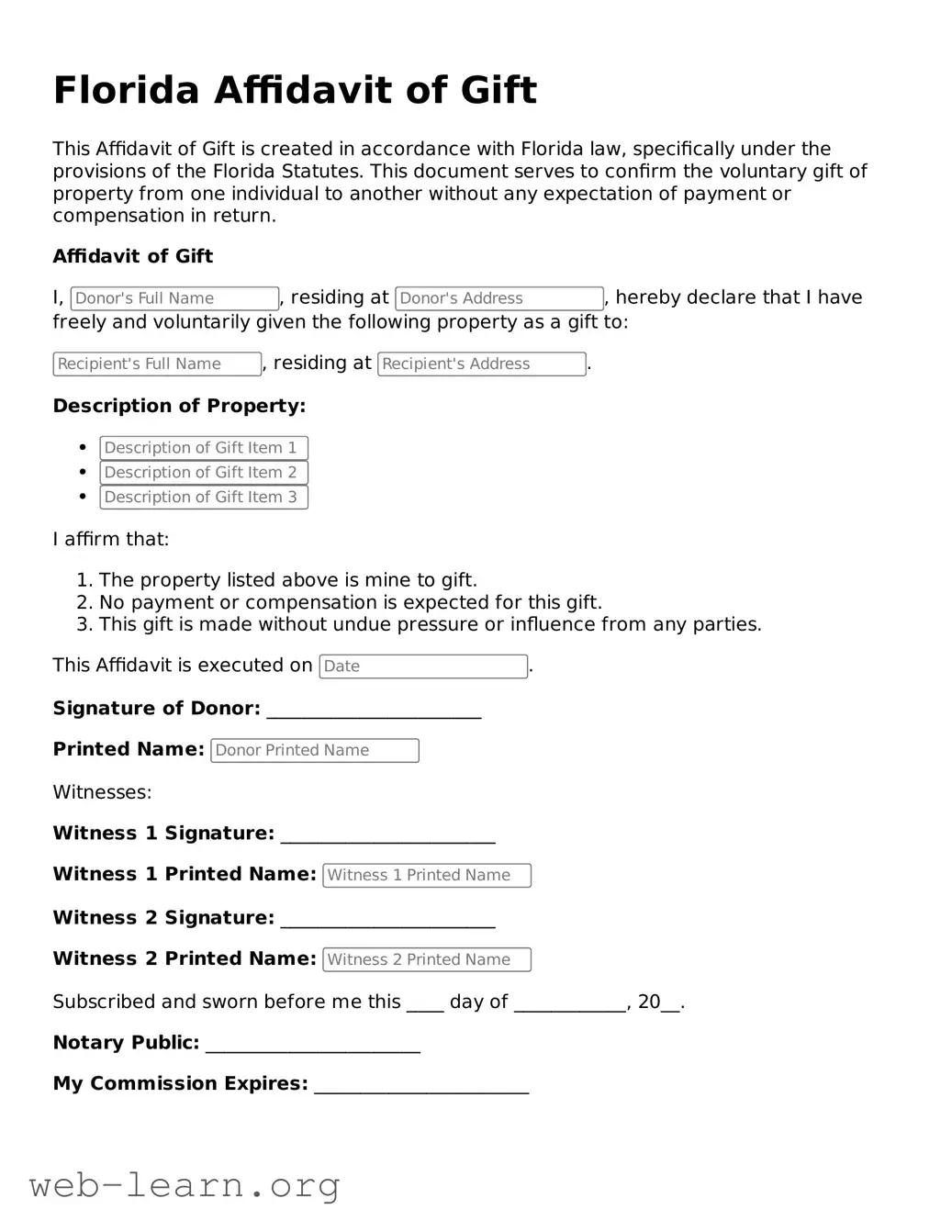Attorney-Approved Affidavit of Gift Document for the State of Florida
The Florida Affidavit of Gift form is a legal document used to formally declare a transfer of ownership of property or assets as a gift. This form serves as evidence that the recipient has received the item without any financial exchange, ensuring clarity in ownership and potential tax implications. Understanding this form can be essential for both donors and recipients navigating the complexities of property transfer in Florida.
